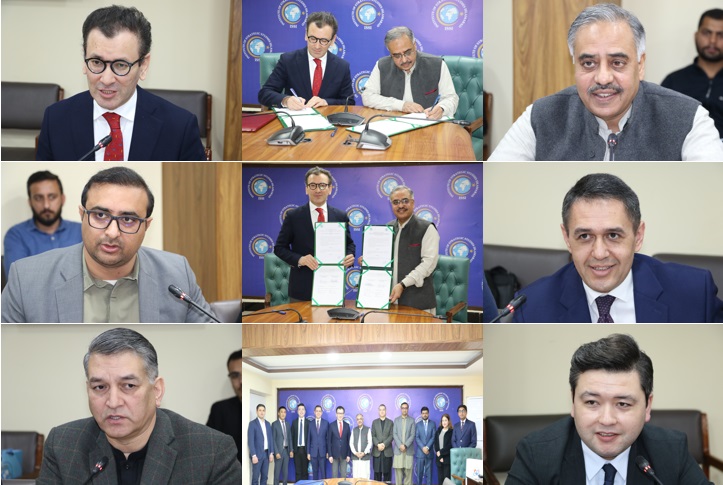ISLAMABAD ( WNAM REPORT): The Institute of Strategic Studies Islamabad (ISSI) has formalized an institutional relationship with Uzbekistan’s International Institute for Central Asia (IICA), based in Tashkent, by concluding a Memorandum of Understanding (MoU). This partnership between the two think-tanks aims to facilitate research and dialogue on a range of subjects — including Pakistan-Uzbekistan relations, Central Asia, infrastructure projects and connectivity, and regional stability and prosperity. The two sides had a wide-ranging exchange of views on these subjects during the meeting. The MoU was signed by Ambassador Sohail Mahmood, Director General ISSI, and Ambassador Javlon Vakhabov, Managing Director, IICA, for their respective sides.
Ambassador Sohail Mahmood highlighted ISSI as a premier research institution with 52 years of experience in policy research, dialogue, and outreach to partner think-tanks in Pakistan and internationally. He highlighted Pakistan’s approach towards Central Asia, encapsulated in the “Vision Central Asia,” with five key pillars: political/diplomatic; trade and investment; energy and connectivity; security and defence; and people-to-people links. He lauded the steady progress being made in bilateral relations as reflected in the establishment of strategic partnership and signing of landmark transit trade and preferential trade agreements. Ambassador Sohail Mahmood also noted that Pakistan provided the shortest land access from Central Asia to the sea-ports of Karachi and Gwadar. Among major connectivity initiatives, he alluded to the Trans-Afghan Railway Project. He also underlined the importance of establishing synergy between CPEC and other regional initiatives. Along with hard (physical) connectivity, Ambassador Sohail Mahmood emphasized the imperative of ‘soft connectivity’ through people-to-people exchanges, particularly in the tourism, education, and research and think-tanks domains.
Ambassador Javlon Vakhabov informed that IICA, established in 2021, focuses on good neighborhood policy, and conducts research on immediate neighborhood and ways for deepening regional relationships. He highlighted that IICA research priorities include political developments and security; trade, investment and regional connectivity; climate change and environmental protection; cultural heritage; and outreach with Central Asian plus one (C5+1) format. With ISSI, the aim is to collaborate on convergent areas and build a partnership through expert consultations on regional connectivity. He also highlighted the mutual benefits of connecting Uzbekistan-Afghanistan-Pakistan to ports with vast markets in Central Asia and South Asia.
In accordance with the MoU, several ideas were discussed to facilitate joint research, analysis, dialogue, and outreach. These efforts aim to address both opportunities and challenges in areas of mutual interest, including regional trade and connectivity as well as security, stability and prosperity. Perspectives were shared on developments relating to Afghanistan and South Asia.
Earlier, Dr. Talat Shabbir, Director, China Pakistan Study Centre (CPSC) briefed on overall working of the ISSI and its five Centres, while Dr. Khurram Abbas, Director, India Study Centre (ISC), suggested joint research projects on regional connectivity and contribution by IICA researchers in ISSI’s journal.








